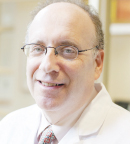To expose future practitioners to the special challenges of treating cancer in older patients, the Geriatrics Service at Memorial Sloan Kettering Cancer Center (MSK) has developed a clinical education model for nurse practitioner students.

Sincere McMillan, MS, ANP-BC, RN
Why Geriatric Oncology?
GIVEN THE aging population, my colleagues and I recognized the need to increase provider awareness regarding the care of older adults with cancer. Being a nurse practitioner myself, I believed it was important to focus on increasing exposure to geriatric oncology principles for other nurse practitioners, a provider population that continues to grow. Nurse practitioners are important members of the health-care team who medically manage patients collaboratively or independently and provide education and supportive care to patients and their family caregivers. However, nurse practitioners’ exposure to the principles of caring for older adults with cancer can vary.
I remember having very little exposure to oncology principles in my nursing education, although aging is a risk factor for cancer development. Within my first few months as a nurse practitioner, I had several patients who were either receiving cancer treatment or who were cancer survivors and I did not feel well equipped to care for them.

Stuart M. Lichtman, MD
When I joined MSK’s Geriatric Medicine Service, I realized that for many patients, cancer was a comorbid, chronic condition that needed careful management, just like diabetes or heart disease. I wanted other nurse practitioners to understand their potential role in caring for these complex patients and to ease some of their apprehension.
It Takes a Team
IN 2015, we began investigating ways to add to nurse practitioners’ knowledge base of geriatric syndromes and increase their experience caring for older patients with cancer. Engaging nurse practitioner students and partnering with schools of nursing in the New York area to develop a clinical rotation model were thought to be the most feasible and effective methods. Our service has always had nurse practitioner student rotators, but we wanted a new way to engage with them. We didn’t want students only to observe what we did; we wanted them to be fully immersed in comanaging and providing care to actual patients.
GUEST EDITOR
Geriatrics for the Oncologist is guest edited by Stuart M. Lichtman, MD, and developed in collaboration with the International Society of Geriatric Oncology (SIOG). Dr. Lichtman is an Attending Physician at Memorial Sloan Kettering Cancer Center, Commack, New York, and Professor of Medicine at Weill Cornell Medical College, New York. He is also President of SIOG. For more information about geriatric oncology, visit www.siog.org and the ASCO Geriatric Oncology website (www.asco.org/practice-guidelines/cancer-care-initiatives/geriatric-oncology/ geriatric-oncology-resources).With the input of members of our team, we developed a clinical rotation model that covers four main domains of geriatric oncology care: (1) principles of geriatric medicine and the use of geriatric assessment; (2) continuity/coordination of care among members of the care team; (3) enhancement of communication skills with physicians, allied health professionals, patients, and caregivers; and (4) general knowledge of oncology nursing. We also had input from six of our former students when we developed this model; we asked them to elaborate on the ways they thought their clinical rotation could have been enhanced. This insight was valuable in building the model, so future students could get the most out of the clinical experience.
Modeling and Mentoring
EACH SEMESTER, students are recommended to the program by the clinical placement specialist at their school. All students must have a minimum grade point average of 3.5 and submit a personal statement detailing their nursing experience, overall goals for the semester, and their plans to incorporate the geriatric oncology exposure into their future practice. From this group, a cohort of students is selected to participate.
The program is structured to allow students to gain experience both in the hospital and in outpatient geriatric clinics. We wanted students to understand the many transitions of care that patients go through. In both settings, students comanage patients with an attending physician or nurse practitioner and develop comprehensive, patient-specific care plans. For each of the domains of geriatric oncology care, students are required to complete activities and evaluation methods that are broken down into a series of skill and knowledge-based assessments titled “watch,” “attend,” “read,” and “perform.”
“Many students have reached out to me after their rotation and said the program was extremely valuable, and the demand for the program continues to grow.”— Sincere McMillan, MS, ANP-BC, RN
Tweet this quote
For example, to help students understand how to incorporate the comprehensive geriatric assessment in their practice, they “watch” their preceptor complete an assessment, “attend” a nursing or medical geriatric conference at our institution on the topic, “read” at least one evidence-based resource, and demonstrate mastery of skills by using appropriate tools (“perform”). We wanted students to have a foundation they can build on for their future practice and understand why they are doing a particular assessment.
Because of the patient population at MSK, students are able to collaborate with the patient’s oncology team to learn about staging, treatment, and prognosis. Some students come to us with an understanding of basic oncology principles, but others do not, so we encourage them to ask questions at every step. Because our cancer patient population is so diverse, it is a wonderful opportunity for students to learn in a nonthreatening environment.
Promising Results and Future Goals
SO FAR, 24 students have participated in the program, and 7 are currently practicing nurse practitioners in oncology settings. Many students have reached out to me after their rotation and said the program was extremely valuable, and the demand for the program continues to grow. The current spring 2018 semester has seen the largest cohort of students so far: six in total.
“I strongly believe that this type of model is an innovative way for us to enhance and improve the quality of clinical education for nurse practitioner students.”— Sincere McMillan, MS, ANP-BC, RN
Tweet this quote
The comprehensive structure of the program is attractive to both students and clinical placement coordinators. Students will be expected to perform at a high level and comanage patients who often require complex treatment. They appreciate being able to do this in a structured environment. The goal is to continue to offer the program for nurse practitioner students and create more ways for practicing nurse practitioners to gain geriatric oncology–related experience.
I would like to see the development of a geriatric nurse practitioner champions program at MSK and a formal 1-year geriatric oncology fellowship. My team and I are dedicated to developing comprehensive and sustainable programs that emphasize team-based care. I strongly believe that this type of model is an innovative way for us to enhance and improve the quality of clinical education for nurse practitioner students. The program has allowed them the opportunity to gain experience and become more confident in the care of patients with cancer and geriatric syndromes. ■
Ms. McMillan is a board-certified nurse practitioner in adult health in the Geriatric Service at Memorial Sloan Kettering Cancer Center, New York. She was awarded a John A. Hartford Change AGEnt award for her work in educating nurse practitioner students in the care of older adults with cancer as well as recognized by the Oncology Nursing Society with the prestigious Excellence in Care for the Older Adult with Cancer Award.
DISCLOSURE: Ms. McMillan reported no conflicts of interest.

